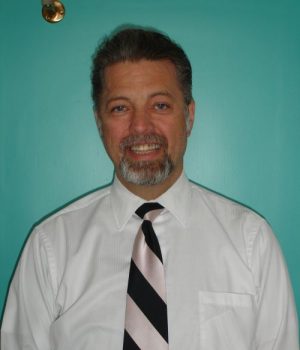PEMBROKE – By his own admission, Pembroke resident Philip Bjorkman had luck on his side when he suffered a significant stroke three years ago during a surgical procedure.
“Looking back to that time in my life, I had a lot of risk factors at play,” said Mr. Bjorkman. “I had a busy lifestyle – worked all the time; I drank too much, ate too much, didn’t exercise and I weighed 335 pounds.”
Mr. Bjorkman, who rarely visited the doctor, ended up in the Pembroke Regional Hospital’s emergency department on July 5, 2013 after experiencing unusual tingling sensations on his left side. Diagnostic tests indicated the presence of a brain tumour or cyst so he was sent to The Ottawa Hospital for surgery and the mass was removed on July 10th.
“When they opened me up, thankfully it was a cyst, not a tumour and they were able to remove it completely without touching the brain, but while I was still opened up, I suffered a stroke – in the presence of a brain surgeon – I couldn’t have been in a better place to have this happen,” he said.
Mr. Bjorkman’s medical team administered tPA (Tissue Plasminogen Activator) which is a clot-busting drug used to treat certain types of strokes. While he had no family history of stroke, given his risk factors, Mr. Bjorkman said the stroke could have occurred at any time.
When Mr. Bjorkman woke up in the recovery room he was told that he had suffered a stroke and was now paralyzed on his left side.
The availability of an Integrated Stroke Unit and Rehabilitation at PRH enabled Mr. Bjorkman to be quickly transferred back and receive the care he needed closer to home.
“The combination of acute treatment and early rehabilitation on one integrated unit is very important in terms of effective stroke recovery,” said Physiatrist Dr. Debbie Timpson. “Following a best practice approach, specialized stroke care is provided by a team that works collaboratively with a focus on patient goals. All of this not only helps to improve patient outcomes but it also saves lives.”
Since 2004, the Pembroke Regional Hospital has been a designated District Stroke Centre for Renfrew County operating a 28-bed (22 rehab/6 acute) regional Rehabilitation Unit, 11 of which are designated as Integrated Stroke beds.
“An integrated and systematic approach to care where patients receive all the stroke care they need from acute to rehab without having to move to a different unit or bed leads to positive outcomes,” said Beth Brownlee, Director of Medicine, Rehabilitation and Ambulatory programs at PRH.
She noted that last year, from April 1, 2015 until March 31, 2016, a total of 160 stroke patients were admitted.
Vascular Health Co-ordinator Karen Roosen said that being on the Integrated Stroke Unit is an ideal model of care offering consistency of treatment from an interprofessional team of stroke experts which includes a physiatrist, nurses, physiotherapists, occupational therapists, a speech language pathologist, rehab assistants, a social worker, a dietitian and others. The team works collaboratively with the patient and family to improve outcomes and work towards a positive transition to their home.
Mr. Bjorkman described his experience in the Integrated Stroke Unit as “top-notch” and credits some of his recovery’s success to being a “willing patient”.
“For the first couple of weeks I was in a wheelchair but then I progressed to a walker. It’s been said you get out of something what you put into it and I was highly motivated to get well and get out,” he said.
As part of his journey to recovery Mr. Bjorkman received daily individual therapy sessions and took part in group exercise classes among other things.
To reduce his risk factors, Mr. Bjorkman also began to lose weight through exercise and reduced portion sizes. To date he has lost 115 pounds.
When he was discharged from hospital on August 21, 2013, Mr. Bjorkman said he was in pretty good shape and notes that, three years later, he’s now about 95 percent recovered with just some remaining dexterity issues in his left hand.
Now, 55, he said he regularly goes to the doctor and is hyper-vigilant about his health, paying closer attention to any signs or symptoms that warrant a check. He has also taken up golf and fishing to allow himself some downtime and relaxation as part of his health regiment.







![Kenopic/Smith Auction [Paid Ad]](https://whitewaternews.ca/wp-content/uploads/2018/10/advertising-100x75.jpeg)

